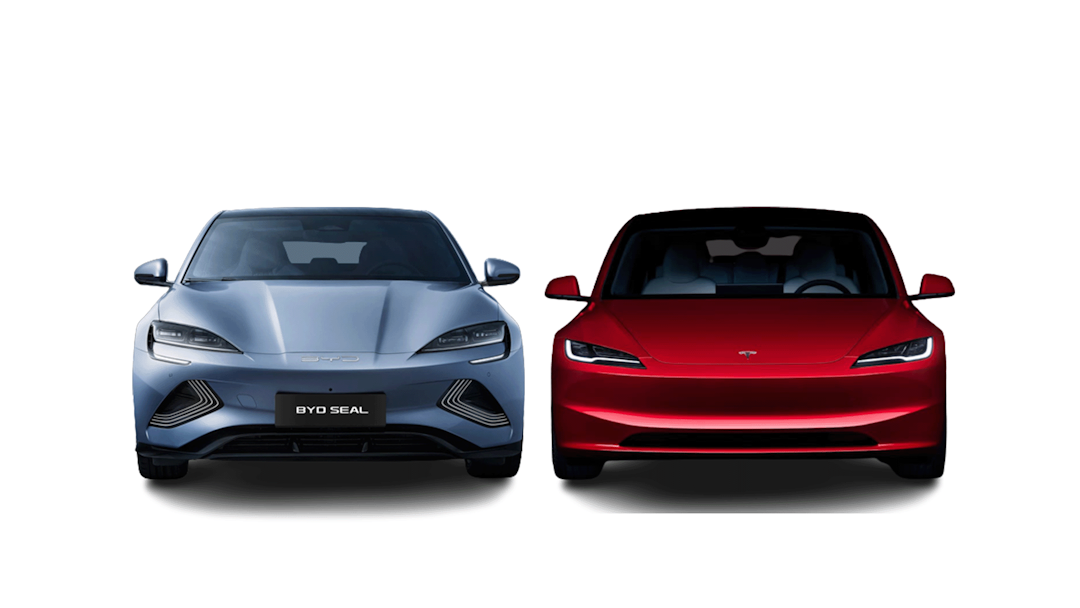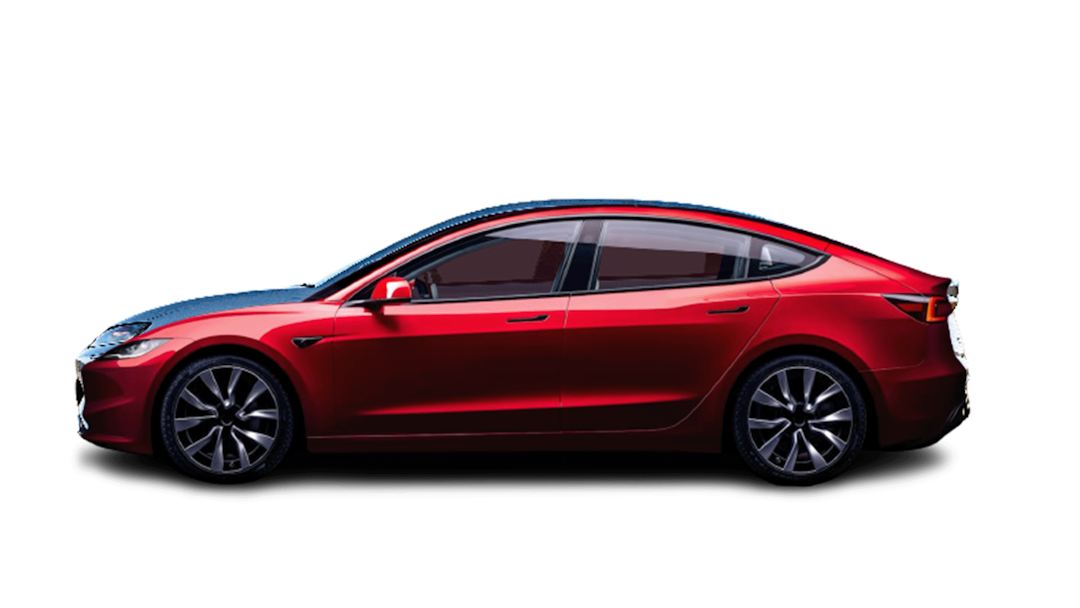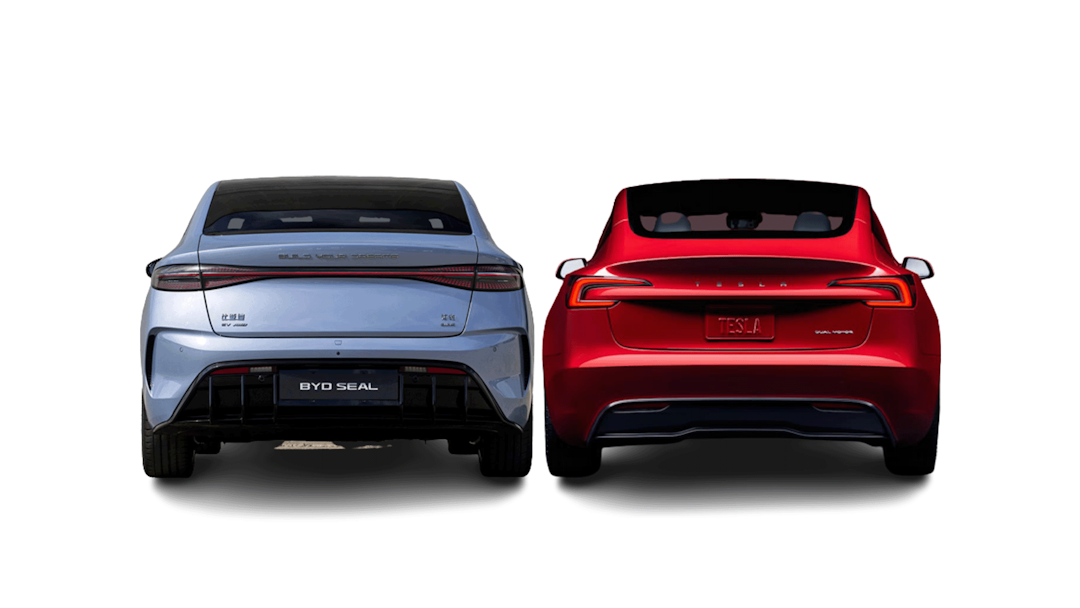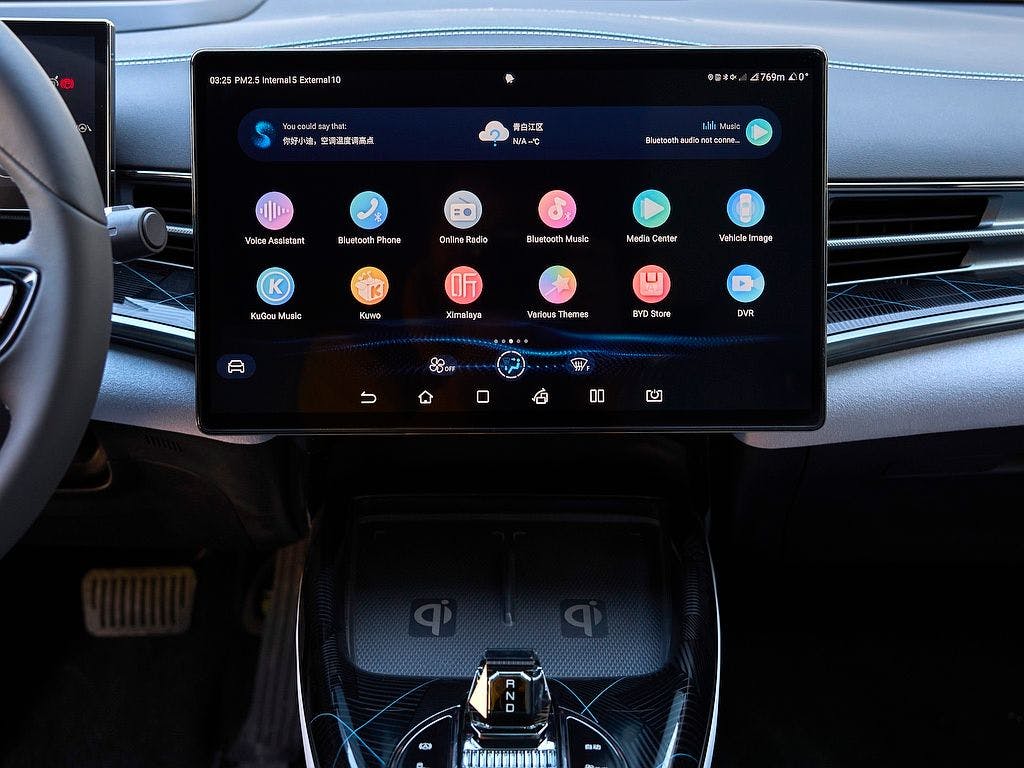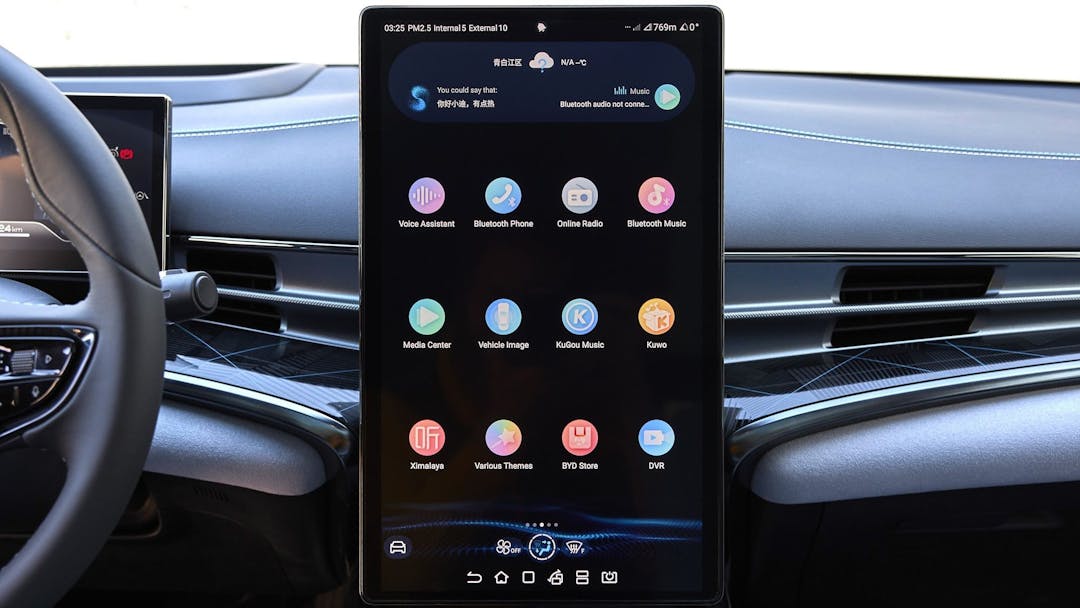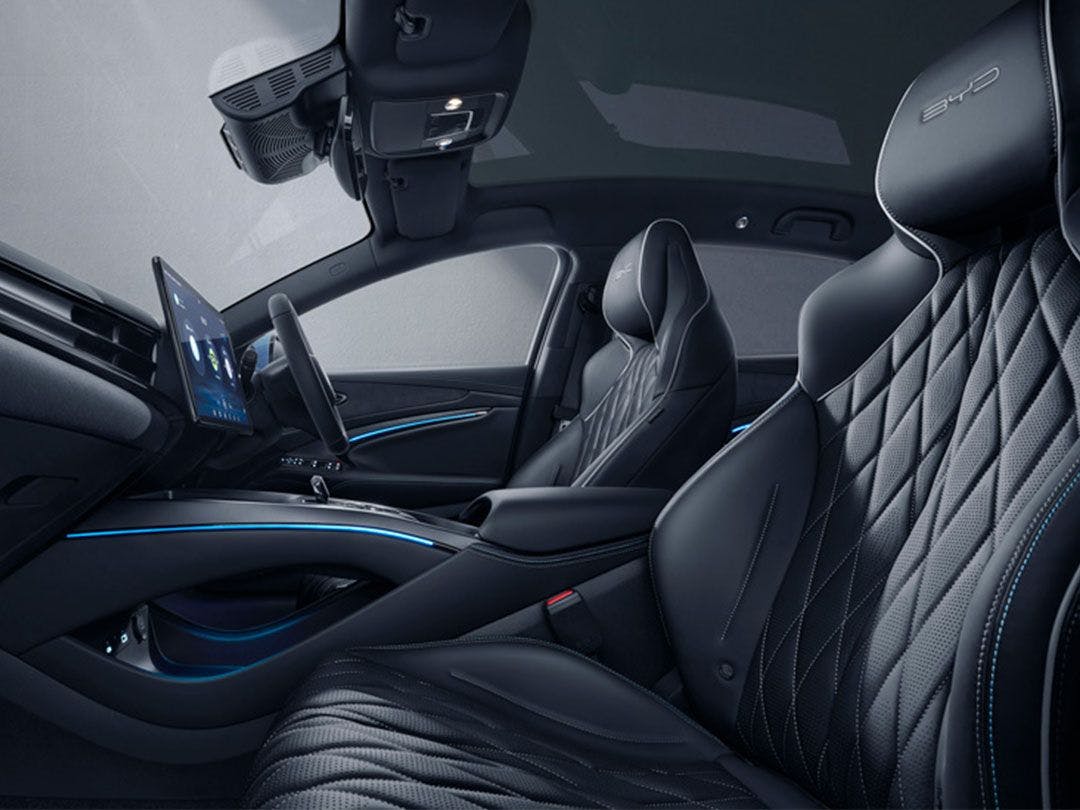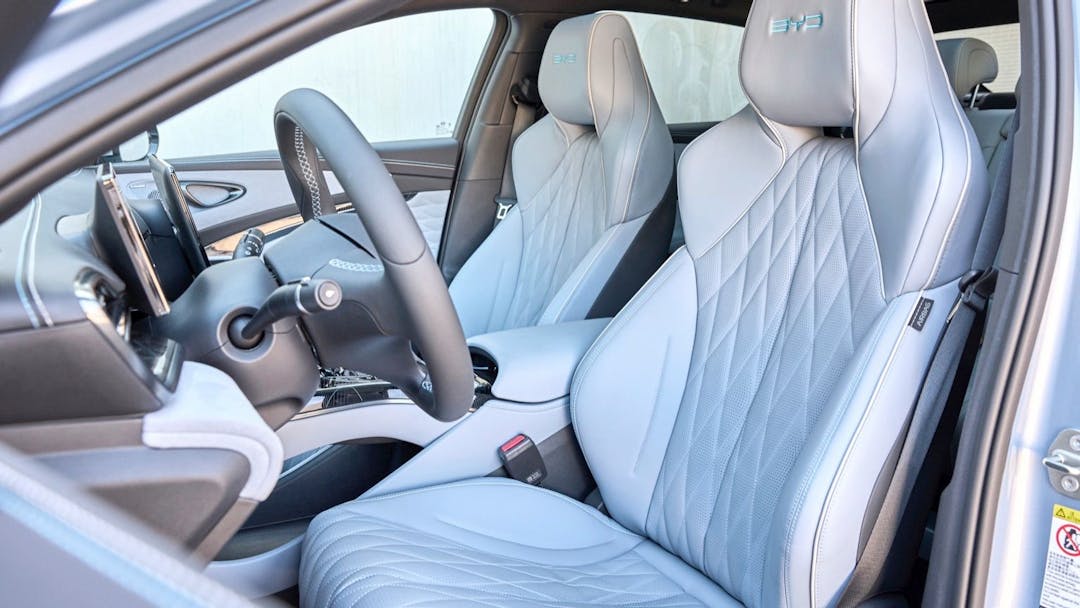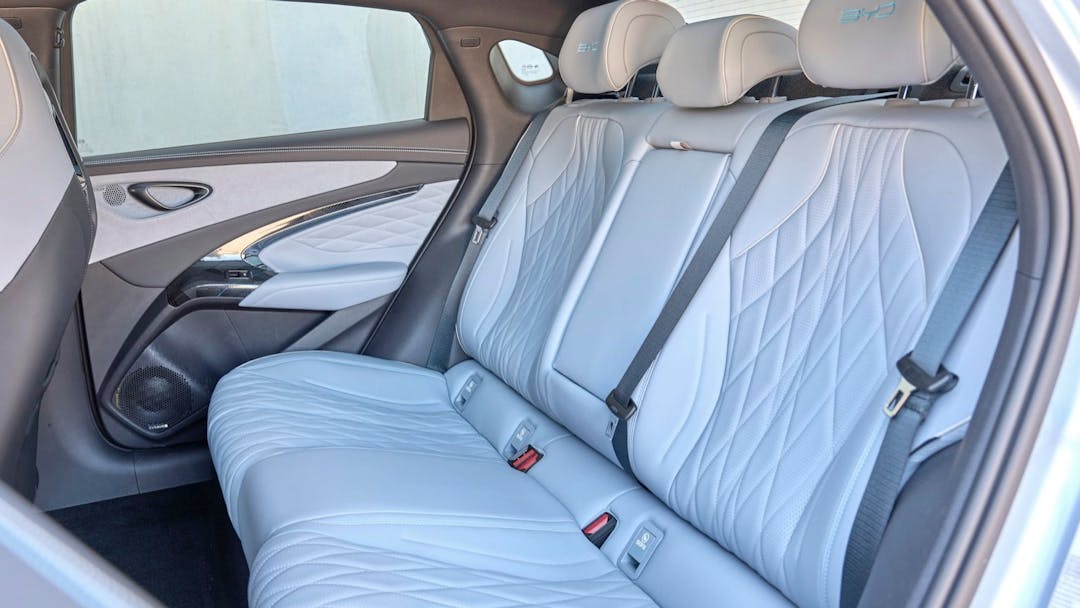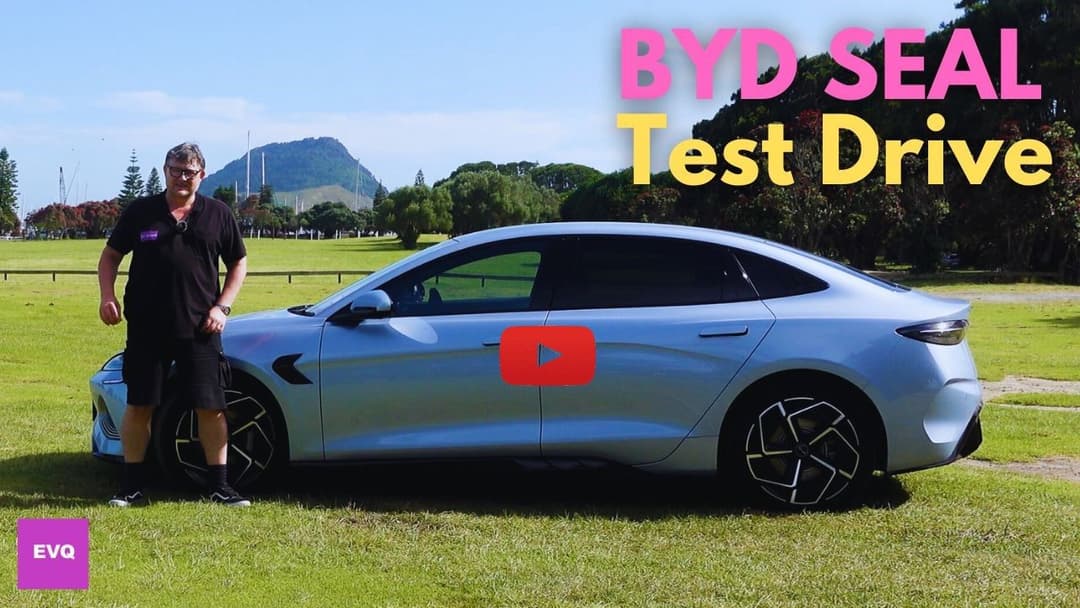
The BYD Seal is a mid-sized sedan that competes with the Tesla Model 3, Polestar 2 and Hyundai Ioniq 6.
Following on from the Atto 3 and the Dolphin, the Seal is the third EV from BYD to land in Australia.
The Dolphin has been battling for the title of “The cheapest EV” in Australia, while in contrast, the new BYD Seal sedan seems to focus more on "affordable quality" rather than aiming for the lowest price point in its class.
The Seal sedan comes in 3 variants, with prices starting from $49,888 for the Dynamic, $58,798 for the Premium, and $68,748 for the Performance. I got to drive the Premium for my review.
Vehicle information is currently unavailable.
➡️MORE: 2024 BYD Seal Price and Specs
Of the three models, the Performance has been the one to attract initial headlines with its impressive 0-100km/h time of 3.8 seconds, impressive enough for BYD to warrant branding the car with “3.8S” badging on the rear. However, I’m reviewing the Premium model that delivers a more modest, but nonetheless very respectable, 0-100km/h in 5.9 seconds.
The maximum DC charging rate for the Premium and Performance is 150kW, while the Dynamic has a DC charge of 110kW. AC Charging is a very standard 7kW for all 3 models. BYD SEAL Vehicle to Load (VTOL) technology as standard.
zecar rating
Good points
- Exterior looks
- Camera options
- Value for money
Could be better
- Sound effects from safety features
- Lane Keeping Assist issues
- Charging rate is nothing special
Exterior
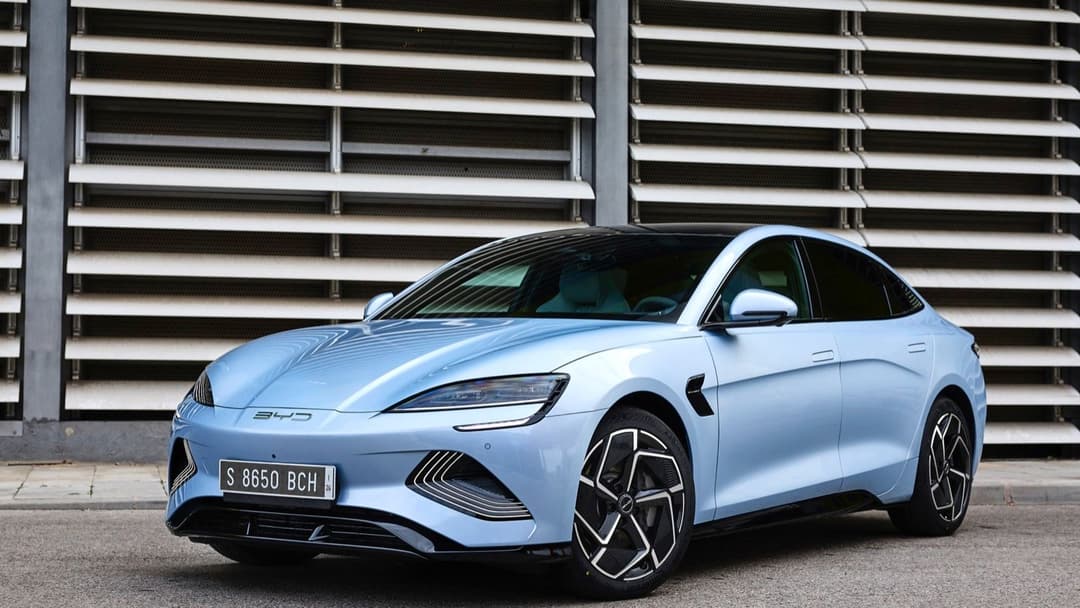
Checking out its styling with a walk around, my first thoughts were that I liked its styling from all angles. It is sleek-looking and modern, although perhaps still a little understated.
Size-wise, the Premium’s dimensions are: height 1460mm, length 4800mm, and width 1875mm. (slightly longer than the Tesla Model 3). The minimum turning radius is 5.7m.
➡️MORE: BYD Seal vs Tesla Model 3 Specs and Features
The pop-out door handles give it a touch of class. Boot size is a respectable 400 litres, with an additional 50-litre trunk up front. Standard options include privacy glass on the rear door, rear quarter, and rear windscreen, 19-inch alloy wheels, LED headlights, and one-touch open & close tailgate.
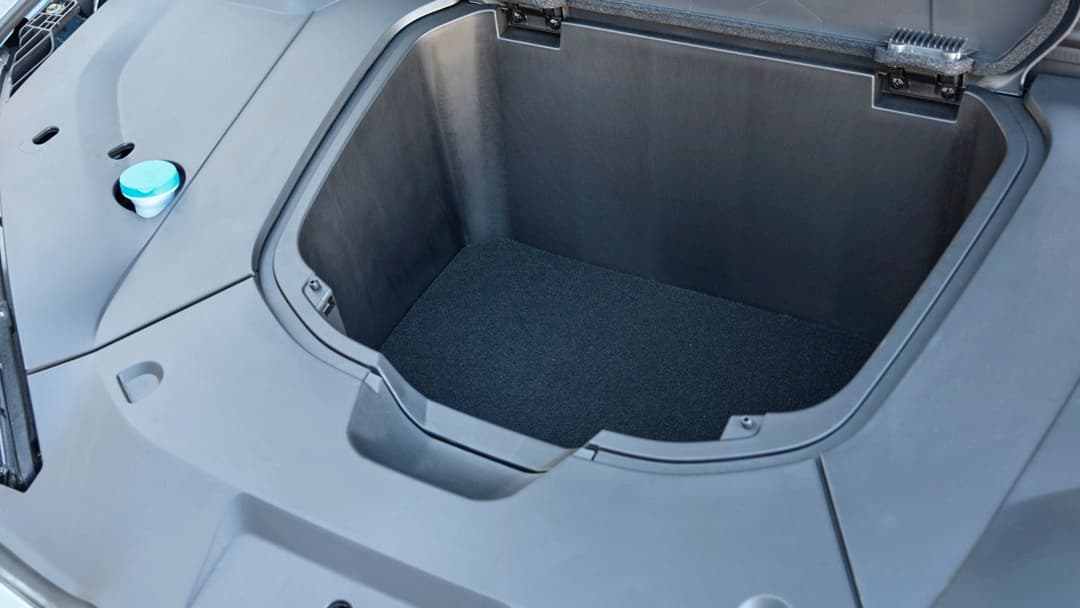
Interior
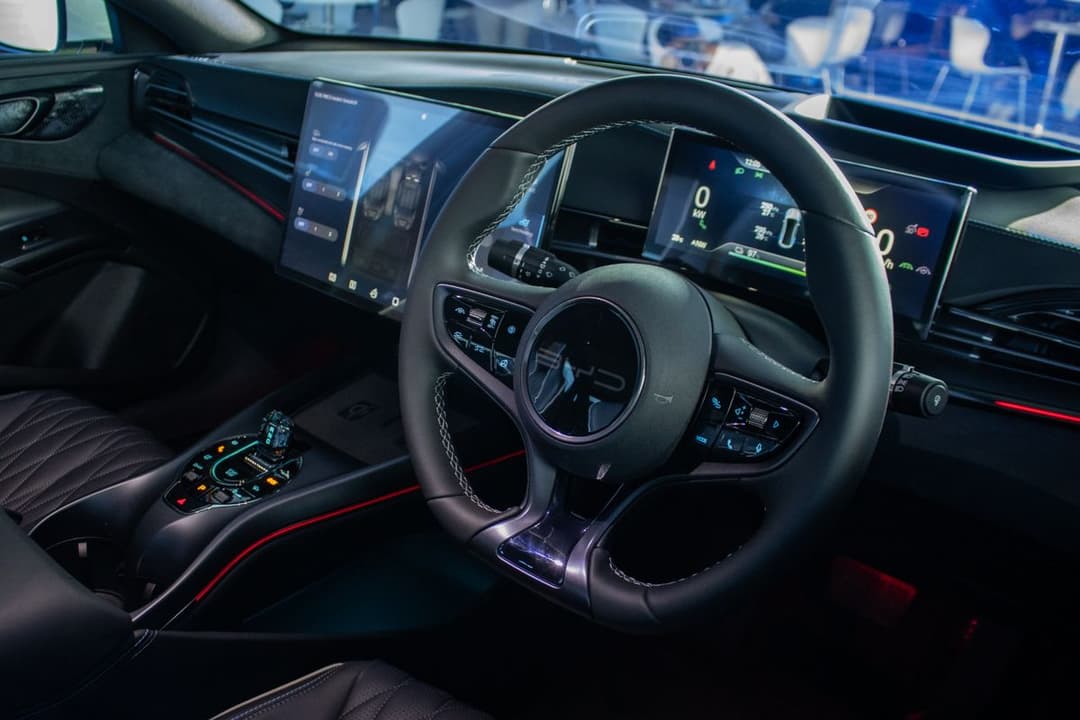
On first impressions, I found the layout and styling of the interior to be very similar to the Dolphin and Atto 3 although I also noticed some differences from the other two models. BYD’s party trick, a 15.6-inch rotating infotainment centre screen, is still there. This is the control centre of the vehicle, with access to functions such as the air conditioning system and navigation. Other features include wireless Android Auto and wired Apple CarPlay. It also has a 10.25-inch instrument cluster and twin wireless phone chargers.
I much preferred the seats in the Seal to those in the Atto 3 and Dolphin. The Premium has genuine leather-wrapped seats which give a touch of class and the front seats are ventilated and heated, with plenty of adjustment options to get into the perfect driving position.
I did feel right at home in BYD Premium as soon as I stepped into it, but I also felt as if I had noisy neighbours given all of the “bings and bongs” that were continually emanating from the various electronics and safety devices.
Safety Features
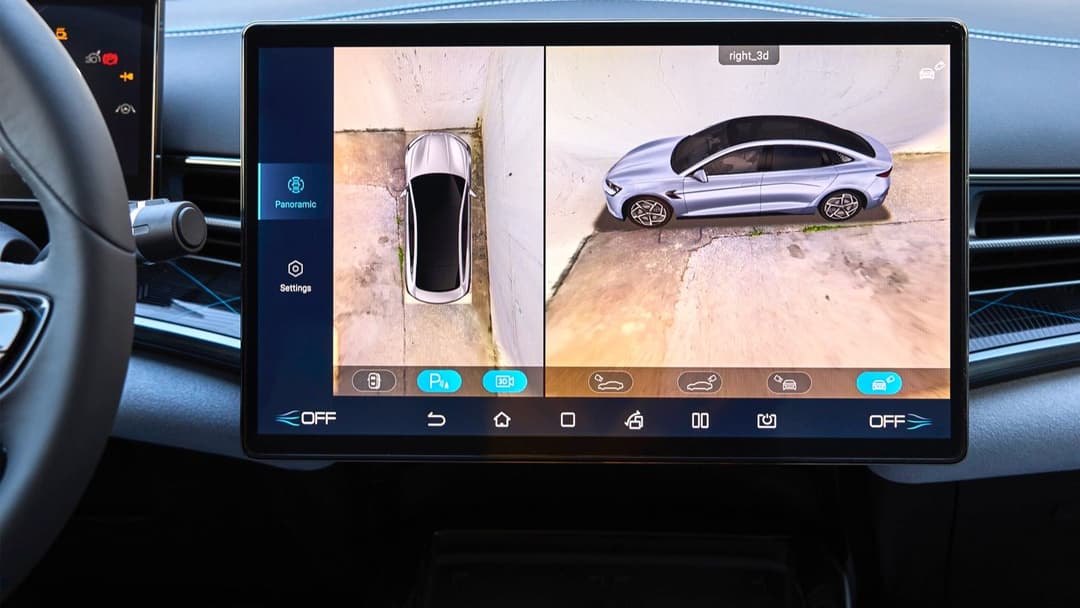
The Seal is packed with safety features, which is reflected in its 5-star ANCAP rating. These features include a 360-degree camera, lane departure warning, and intelligent cruise control. There is also a head-up display, many parking sensors, and camera views all around the vehicle.
Many owners have left feedback comments in various forums in which they have reported issues with the car's advanced driver assistance system. An example of this is the overly sensitive “Active Lane-keep Assist” so this is something to watch for. Hopefully, future software updates will rectify these issues.
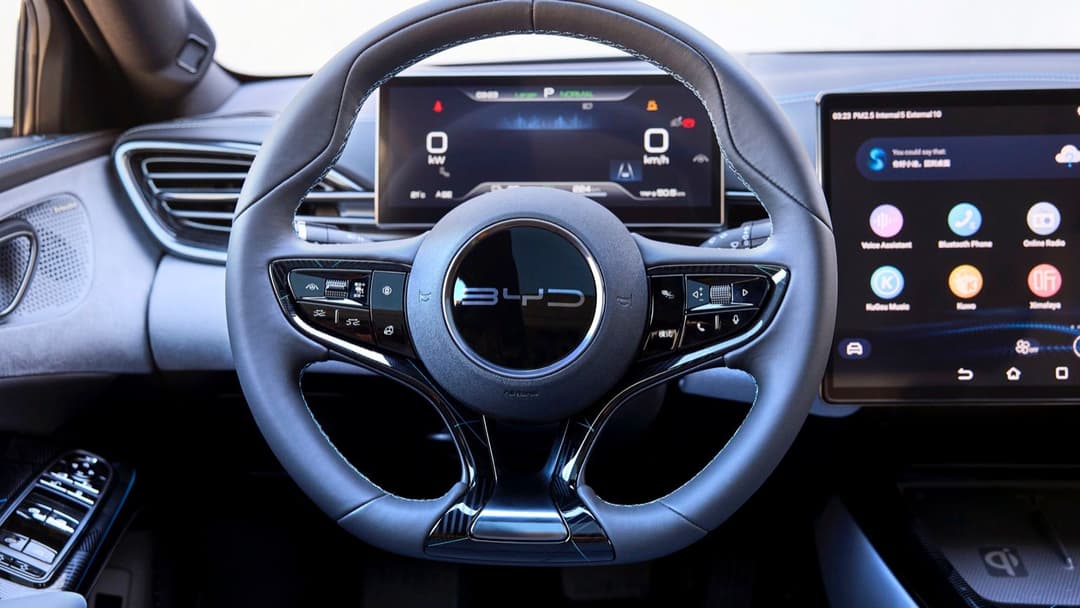
However, if you want to cut down on the “Bings and Bongs” then you have to disable them each time you start the car which is annoying. These annoyances however could be fixed with future OTA updates, something BYD has been doing well with the Atto 3.
➡️MORE: 2022 BYD Atto 3 Extended Range long term owner review
Range and Charging
Given my limited time with the Seal Premium, I was unable to properly test the claimed WLTP range of 570km. Given its large 82.6kWh battery and its aerodynamic design I am confident you'll get close to range (or exceed it) if you're primarily doing citiy driving. Highway driving will likely drop the range to 500km or less.
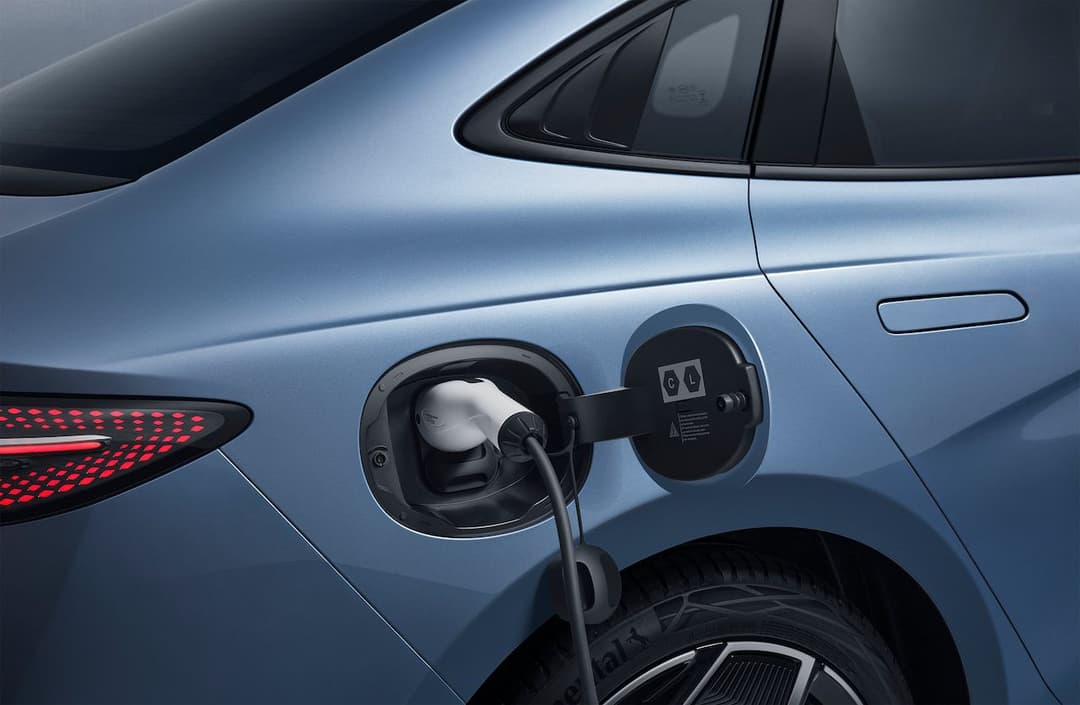
I didn't get the opportunity to charge the Seal Premium, but its has about average DC charging speeds. Charging the BYD Seal Premium from 10% to 80% at a fast/rapid DC charging station can be done in as little as 37 minutes, providing 401km of range.
➡️MORE: BYD Seal Charging Guide
Driving
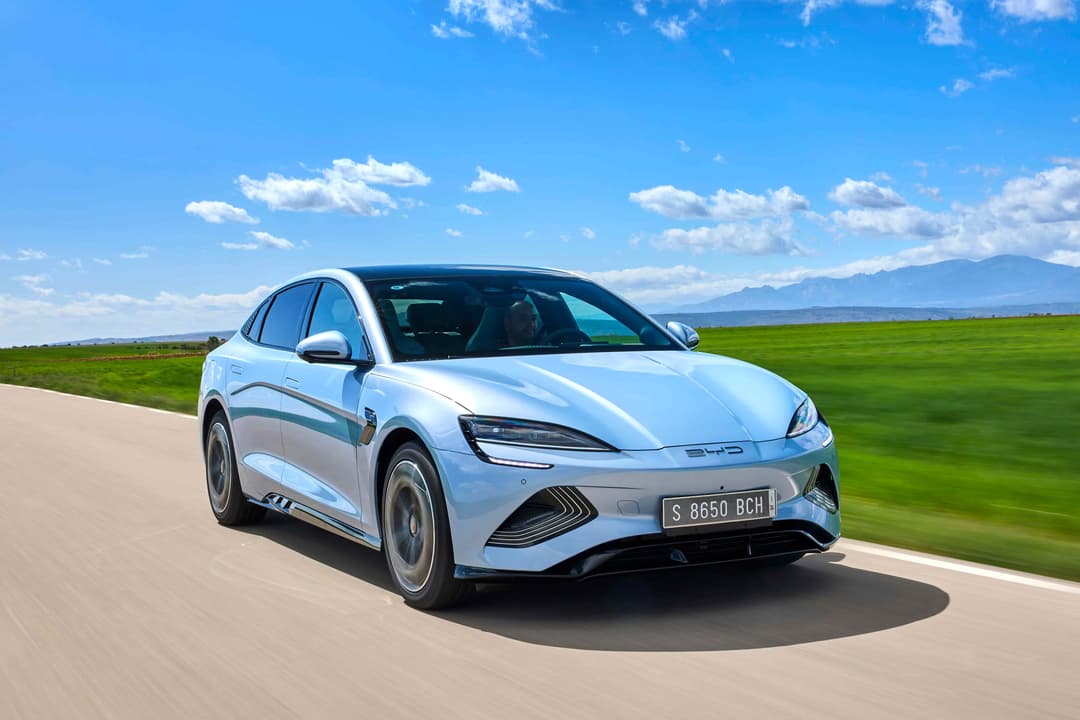
There are four modes to choose from when driving the Seal: Eco, Normal, Sport, and Snow. I found driving the Seal Performance to be comfortable on a variety of road conditions, such as inner-city driving, windy roads, and the open motorway. There was a lot less roll compared to big SUVs I’ve driven in the past. I would, however, require more driving time to fully judge the driving experience.
Should You Take it For a Test Drive?
I would say yes.
If you're looking at a Seal, then you're probably also looking at a Tesla Model 3, so getting comparison data would be extremely helpful in deciding which vehicle you prefer. I ended my test drive keen to take it out again to learn more about it. I also wanted to jump into a Tesla Model 3 to compare the driving experience between the two.
I think the Seal suits me well. I like a sedan. The car looks and feels well-styled. It has a heap of safety features, great cameras, and a solid ride. The only factors that put me off were the lane keeping assist and the sound effects that are supposed to be safety features but, in reality, are annoying and distracting from the Seal’s driving experience.
About the author
Stay up to date with the latest EV news
- Get the latest news and update
- New EV model releases
- Get money savings-deal
